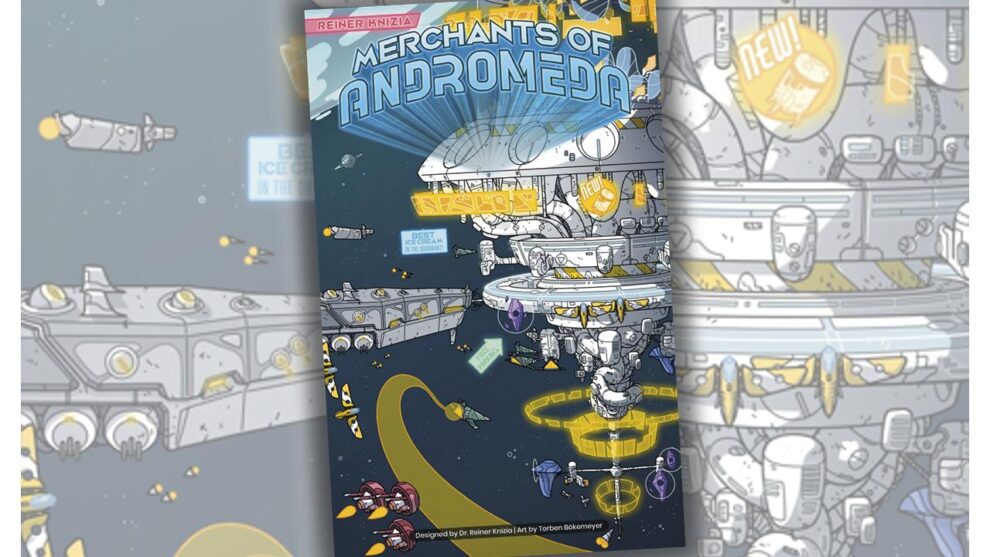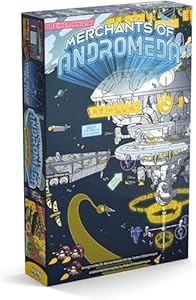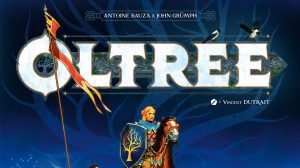Disclosure: Meeple Mountain received a free copy of this product in exchange for an honest, unbiased review. This review is not intended to be an endorsement.
There are two ways to play an auction game: you can bid with your heart, or you can bid with your head. Those who bid with their hearts have a vague idea of how something will work out. They make bids that “feel right.” It’s all about gestalt. It’s jazz. Those who bid with their heads do the math. They add up the points. They calculate the value of each and every thing. These are the people who get analysis paralysis while playing big euros. They cannot make a decision unless they are sure about all the implications.
Do not, under any circumstances, play Merchants of Andromeda with people who bid with their heads.
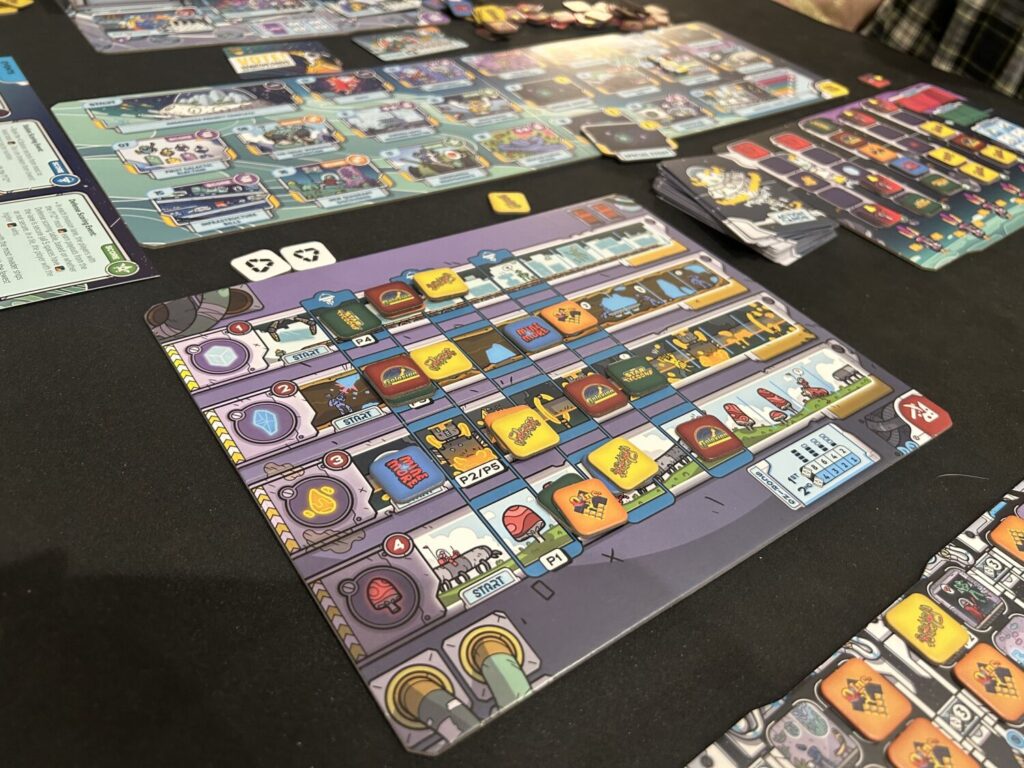
YOU PAID HOW MUCH???
Merchants of Andromeda, an update of Reiner Knizia’s 2000 release Merchants of Amsterdam, uses Dutch auctions to facilitate an interlocking series of area control competitions. On a player’s turn, they draw three cards, one at a time, assigning each in turn to one of three slots on the player board. One card is chosen by that player for the resource it produces. Another is chosen for the action it gives them access to, which is to say, for the area control competition it allows them to interact with. The third card is placed up for auction.
While most kinds of auctions start with a low price and rise to suit demand, Dutch auctions start with the price as high as it’ll ever be then slowly bring it down. Amsterdam used a mechanical clock to count down. The first player to hit it stopped the clock and paid the indicated price. Andromeda uses a simple app. Every player puts a finger on the phone, the countdown starts, and the first player to pull away is the lucky winner. It’s a fidgety, electric stretch of time. The auctions begin at 20, a price no sane player would ever pay, but the first five or so seconds help build uncertainty. I know what I’d pay, but would someone else pay more? Should I remove my finger now?
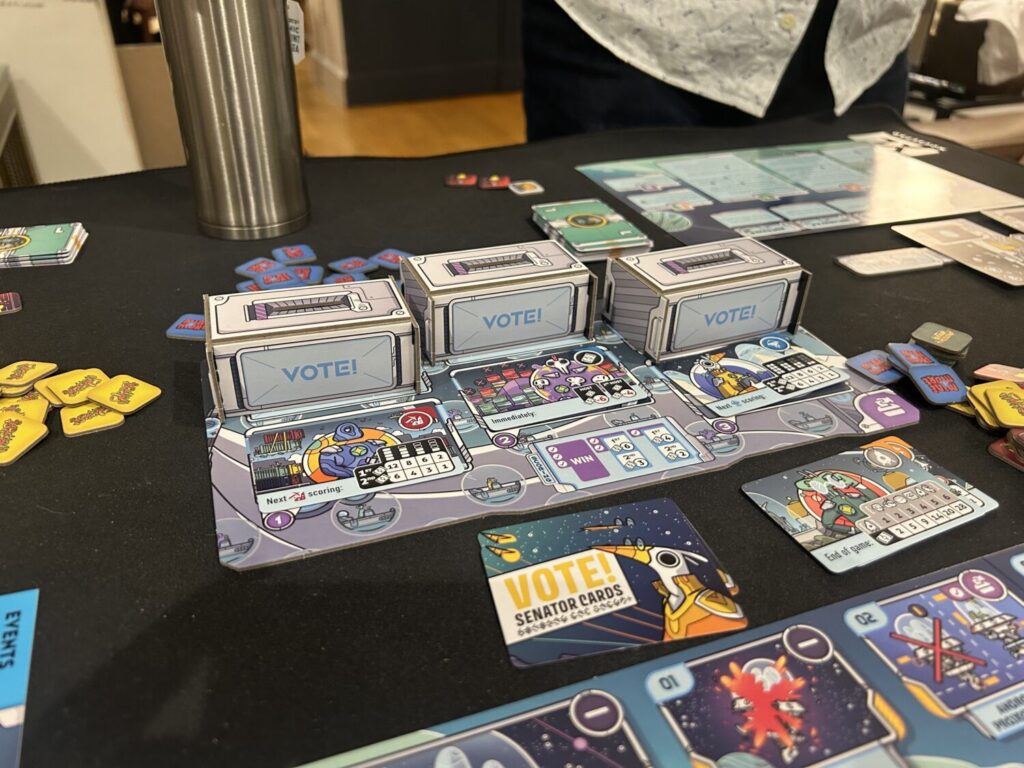
The winner gets both the resource and the action shown on the card. Across the table—and it better be a fairly large table—are six separate boards. Five of them represent each of Merchants of Andromeda’s different mini games. There’s an archaeological expedition, a political election, a Space Invaders-esque competition, a cluster of area control rooms, and four production tracks. They all boil down to simple area control, but they manage to feel meaningfully distinct.
The sixth and largest board is the Event board. 20 Event cards are shuffled in with the rest of the deck. Each time one is drawn, it advances the Event marker, triggering either a round of Voting, a Galactic Event, or a round of scoring. Scoring happens for one board at a time, and is always telegraphed in advance. This means players can plan ahead to some extent, prioritizing what auctions to win and what auctions to leave to others.
I say “to some extent” in part because you can never really know when a cluster of Event cards are going to suddenly whisk things along, but also because Merchants of Andromeda suffers for that approach. This is an auction game where you can do the math, and lord knows in my first play that several people insisted on doing just that, but it is, for all its fiddly grandeur, much better when you cop from Queens of the Stone Age and simply go with the flow. If players don’t fret the granular, if they don’t run the numbers on their ROI, a game with even five players breezes by in the joyful 90 minutes promised on the box.
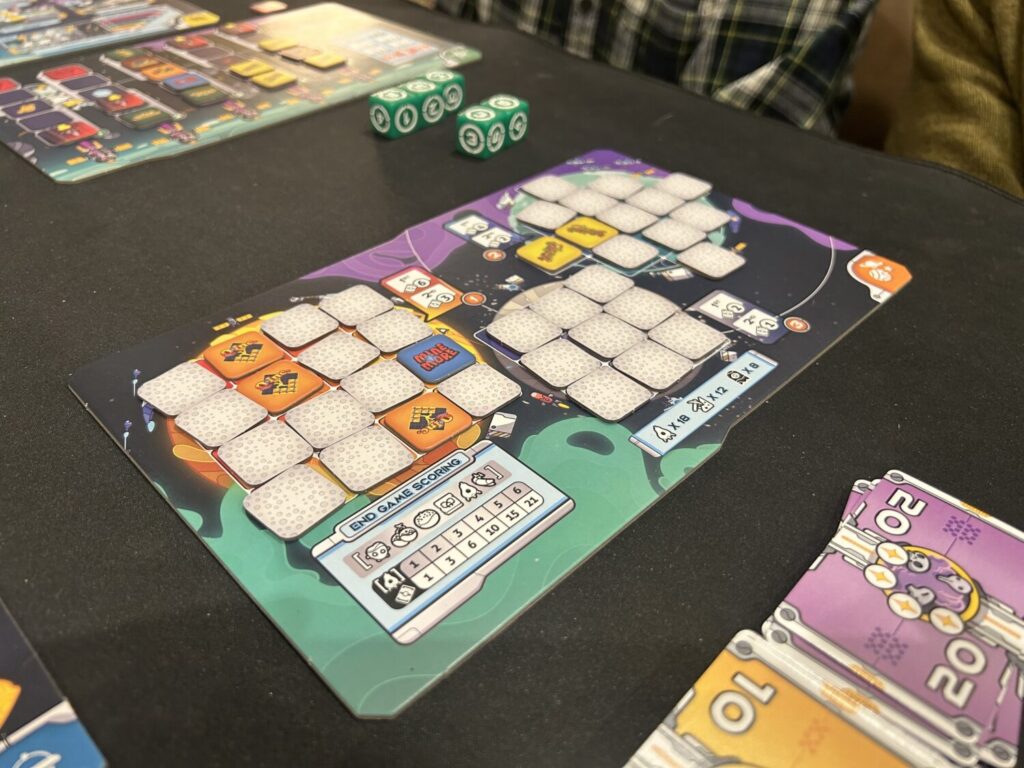
I adore Merchants of Andromeda. I’d play it any time. It has about half a dozen things wrong with it, and I simply don’t care about any of them. The whole thing takes up too much space. It’s inelegant to teach. It looks more intimidating than it is. Torben Bökemeyer’s art is full of character, but it’s also much, much too busy, and the iconography gets lost in the shuffle. Because Events trigger the moment they’re drawn, turns get interrupted, and occasionally for long enough that it’s jarring to remember what you were in the middle of doing. I have no idea who I would recommend it to, because it is such an ungainly li’l guy. How meaningful are your choices, really? Hard to say. Well. Hard to say without grinding the game to a halt.
But even with all that said and acknowledged, somewhere between cursing myself because I drew the perfect card for a slot I already filled on this turn, finding just the right Artifact I wanted on the Exploration board, managing to snag a card up for auction that I wasn’t expecting, and watching my preferred candidate for Senate win the election, I fell in love. Is Merchants of Andromeda any good? I dunno, man. I had a great time, though.


